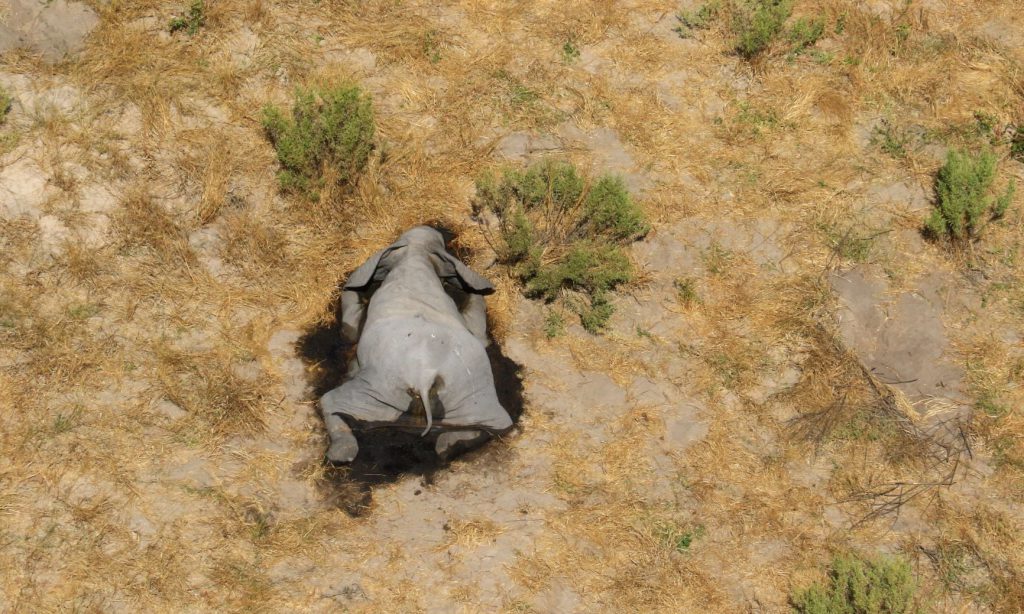The other morning I was saddened to read about the unexpected and inexplicable death of hundreds of elephants in Botswana. No one seems to know what culled the local population of elephants in this part of the world.

While reading the article published in the Guardian, an annoyingly intrusive word soured my mood.
Local witnesses say some elephants were seen walking around in circles, which is an indication of neurological impairment. “If you look at the carcasses, some of them have fallen straight on their face, indicating they died very quickly. Others are obviously dying more slowly, like the ones that are wandering around. So it’s very difficult to say what this toxin is,” said McCann. Excerpted from: Hundreds of elephants dead in mysterious mass die-off – The Guardian 01 July 20
Against this bleak backdrop of death, why add this irksome adverb, which adds nothing to the description and whose nonsensical presence inflates the style while deflating the gravitas of the alarming message being conveyed? ‘Other elephants are obviously dying more slowly?’ What is so obvious about all this? Nothing. ‘Like the ones that are wandering around’ the sagacious interviewee goes on to say. A flawlessly logical conclusion indeed.
In linguistics, words like ‘obviously’ are often referred to as dogmatic words or weasel words. Like a weasel, obviously sucks the essence out of a text leaving it as an empty, meaningless shell. Abstaining from interspersing your writing or speech with this hollow word will not help bring back these gracious animals, but will certainly make you sound like a sensible and sensitive writer.

